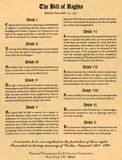Have you ever had military personnel stay on your property? How would you feel if you were told you were required to do so? Most people would find it intrusive. I know I would. In 1774, the second quartering act was passed, requiring colonists to house British troops. Loyalists, people who were loyal to the king, would have had fewer problems with the idea. The rest of the colonists seethed at the thought. "Why should I provide room and board for someone who is here to make sure I do not have my freedom?" may have been what many thought when this act was forced upon them. This would have rung true especially in places with limited resources.
 I used to think that these soldiers were staying within private homes. Upon further research, I learned that the soldiers actually stayed in barns, warehouses, empty homes and buildings. However, if act passed today forcing our military men and women, I don't have a barn or any other type of habitable outbuilding. Even if I had such a building, or soldiers stayed in my neighbors' detached garages, I would be anything but happy. I would expect the headlines of newspapers to say something about big brother is watching.
I used to think that these soldiers were staying within private homes. Upon further research, I learned that the soldiers actually stayed in barns, warehouses, empty homes and buildings. However, if act passed today forcing our military men and women, I don't have a barn or any other type of habitable outbuilding. Even if I had such a building, or soldiers stayed in my neighbors' detached garages, I would be anything but happy. I would expect the headlines of newspapers to say something about big brother is watching.Fortunately, we don't have to provide room and board for our military, unless we are in the middle of a war. It's outlined in the Bill of Rights that only during war can soldiers be quartered in "any house," and only "in a manner to be prescribed by law."
More early American history resources are available here.
Pin It
No comments:
Post a Comment